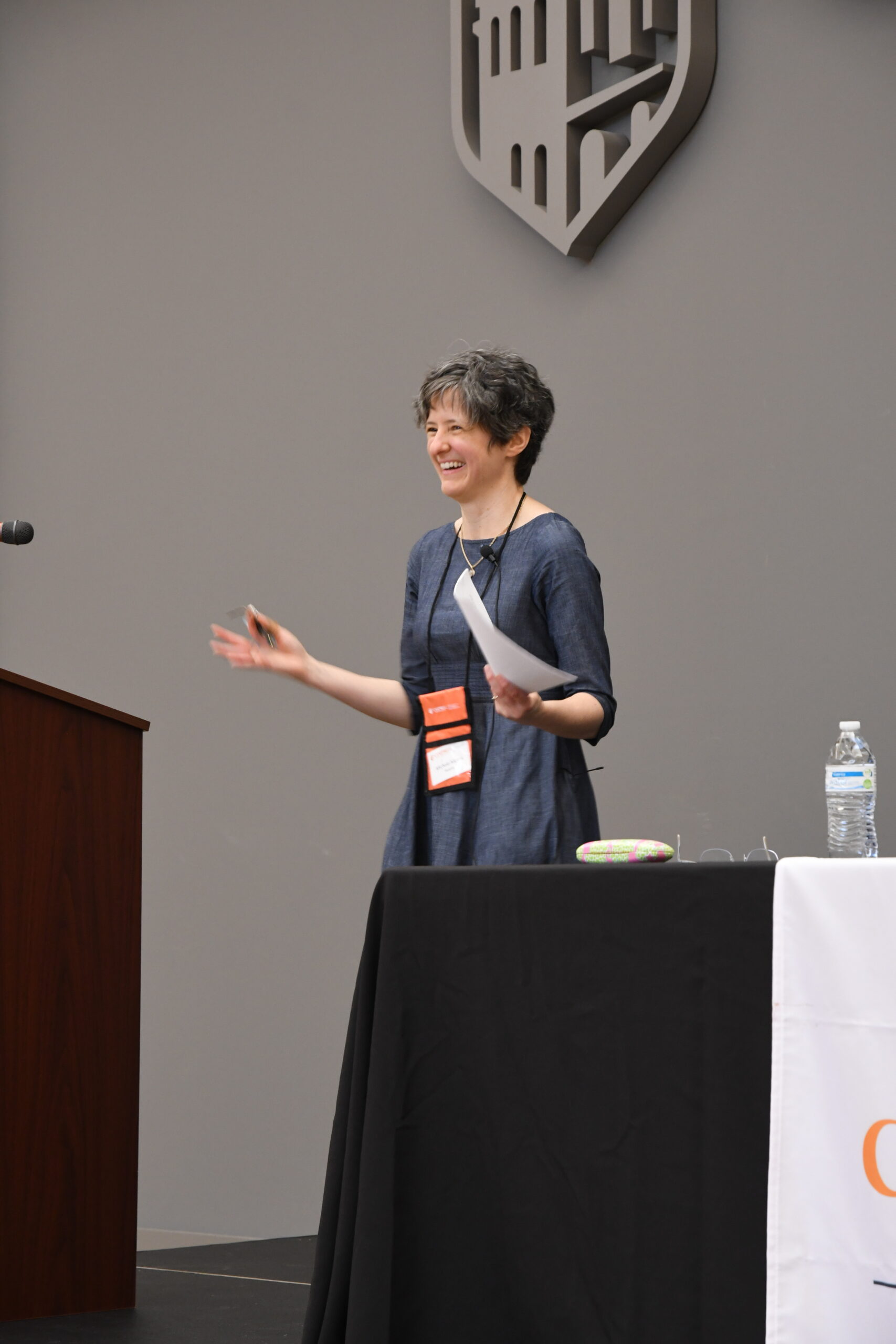Photo: Dr. Darrell Whiteman speaks on anthropology and its role in faith cultures
The Braswell World Religions and Global Cultures Center at the Divinity School held its third annual symposium on Wednesday, October 6. Designed to provide a constructive platform for dialogue between different faith cultures, this year’s conference theme was “Divinity and Humanity: Christian and Jewish Perspectives.”

The annual Symposium began as a forum for extending the work and vision of George Braswell, Wednesday’s guest of honor, through the Braswell World Religions and Global Cultures Center. Its goal is to bring together leaders from different faith traditions for dialogue around topics of mutual interest in a way that is thoughtful, provocative and respectful. This year, Jewish rabbis, Catholic scholars, New Testament experts and other church leaders, as well as eminent missionary anthropologist and keynote speaker Darrell Whiteman, presented at the symposium, taking part in audience-directed Q&A panels and sharing both their theology and personal stories.
“The philosophy of this annual event is to encourage dialogue between Christians and members of other faith traditions,” said Caleb Oladipo, director of the World Religions and Global Cultures Center. “The focus this year is to explore the idea that humanity has not come to God; we have been brought to God.”

Additional panel presenters included Rabbi Eric Solomon of Beth Meyer Synagogue in Raleigh, Rabbi Dov Goldberg of Beth Israel in Fayetteville, and Michele Morris, an actress, writer and director from Richmond, Virginia. They discussed developing an understanding of God’s character through stories and family history as well as through logic and observation, and shared their viewpoints on the role of emotional engagement in knowing God.
Dean of the Divinity School Andy Wakefield encouraged the conference audience to enter wholeheartedly into dialogue in a spirit of openness. “The goal has not been to discount the differences between our faith traditions, but rather to listen to one another carefully so that we might learn more not only about each other, but also about ourselves,” Wakefield said.
“This year’s Annual Symposium offers a particularly intriguing opportunity to listen to and learn from one another, as we explore the ways that Judaism and Christianity address the issues of divinity and humanity,” said Wakefield. “On the one hand, the divinity of Jesus is a distinct point of difference between our traditions; on the other hand, the imago Dei – the conviction that God created humanity in God’s own image – is a significant point of common reference.”

